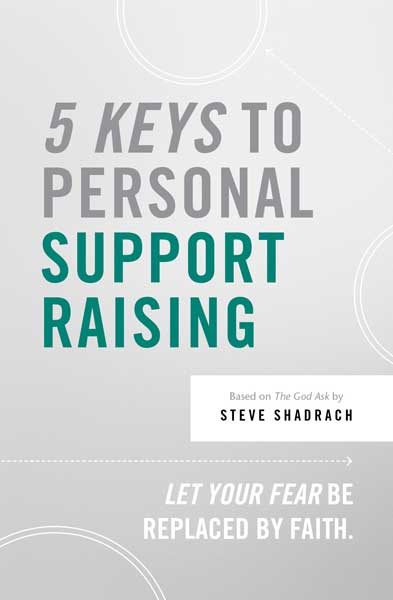Scenario 1: Brad is a 25 year old dynamo who was recently accepted onto the staff of an agency reaching out to Muslims. He received support raising training, and is now working on it full time, but four months into his efforts, he hit a wall. Person after person he meets with seem to be hesitant to come on his team. When he probes a little deeper, some of his contacts have responded, “Now, isn’t your wife a CPA for the big accounting firm downtown?” How is Brad to respond?
Scenario 2: Sarah is an energetic 32 year old who, after getting married and nurturing two kids up to elementary age, wanted to go on staff with a local ministry reaching out to teenagers. To do so, they required her to raise $3,000 a month of support. She felt a little embarrassed, though, to ask friends and family for support, knowing her husband was already making well over $8,000 a month in his sales job. What should Sarah do?
Contrary to some spiritual leaders, I believe both men and women are equally qualified to do full time ministry—as well as raise full support for that ministry. The Bible does touch on the different ministry functions God designed for men and women, but let’s leave the male/female role controversies for another day. Now, we are just trying to help Brad and Sarah, knowing that raising support when your spouse is working too sometimes presents a dilemma involving Biblical, cultural, and economic factors. This is a hot topic with a myriad of opinions, but if staff within your organization fit this category, here a couple of tips to keep in mind:
1. Some potential donors might be hesitant to give
If they know the support raiser has a spouse with a good job and salary, they will probably not say anything, but inwardly smile and think, “Hey, kinda’ double dippin’, huh?!” Their unwillingness to respond might be concealing their doubts about the need to raise another full salary if there is already one significant income in the family.
2. The staffer themselves might not be as motivated
A person will only raise what they have to raise and if they know they can count on their spouses’ $30,000 a year coming in whether they raise 100% support or not, it’s difficult to kindle within a sense of urgency. This can also produce a range of emotions from embarrassment to guilt about asking others for support when it might appear there is not a legitimate need.
Some donors want to get “two for the price of one” and prefer that both husband and wife spend their work hours in the same ministry. This might be the ideal (and can aid the support raising process) but is usually not the norm. Set support policies that fit your organization and people, taking into account the inherent challenges that exist when a support raiser has a spouse with an outside job and salary.

